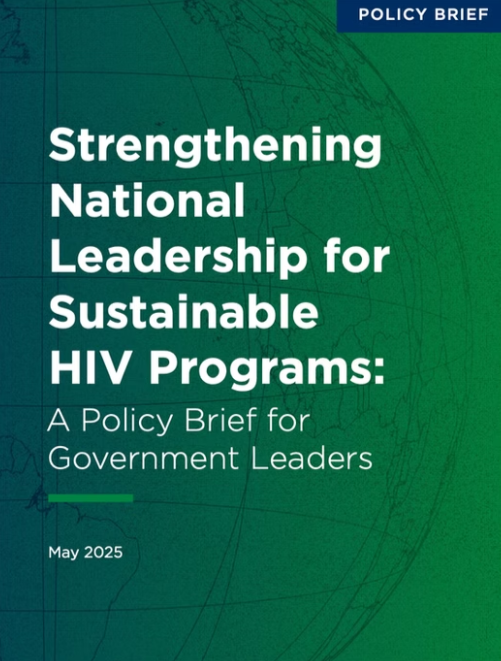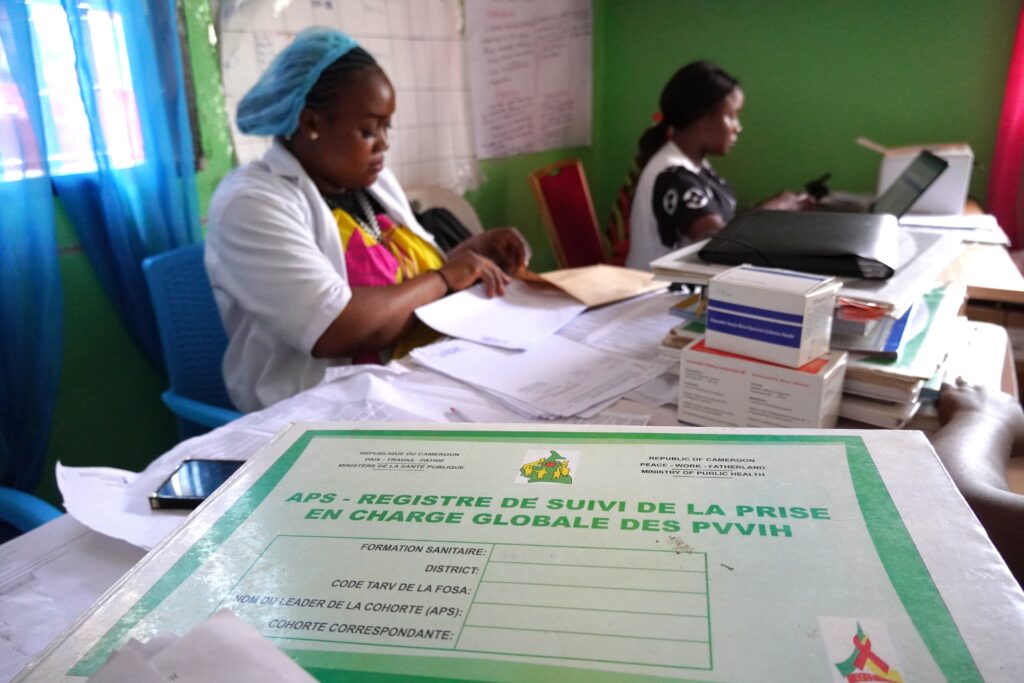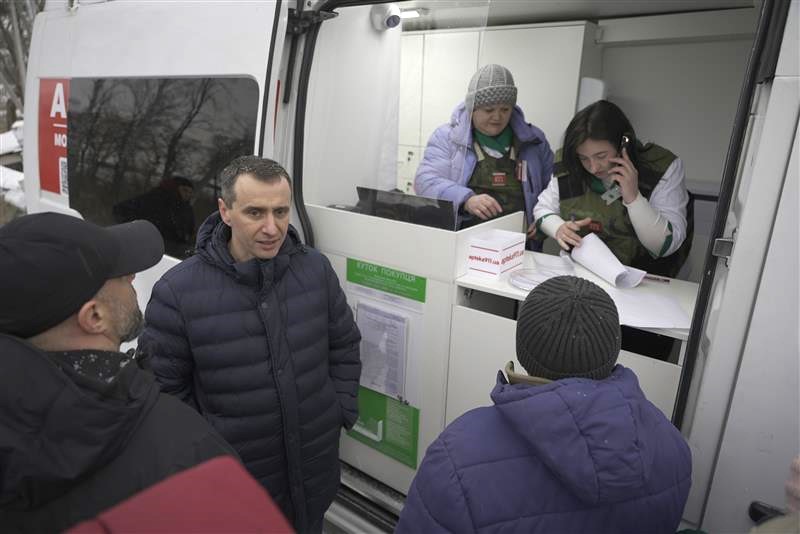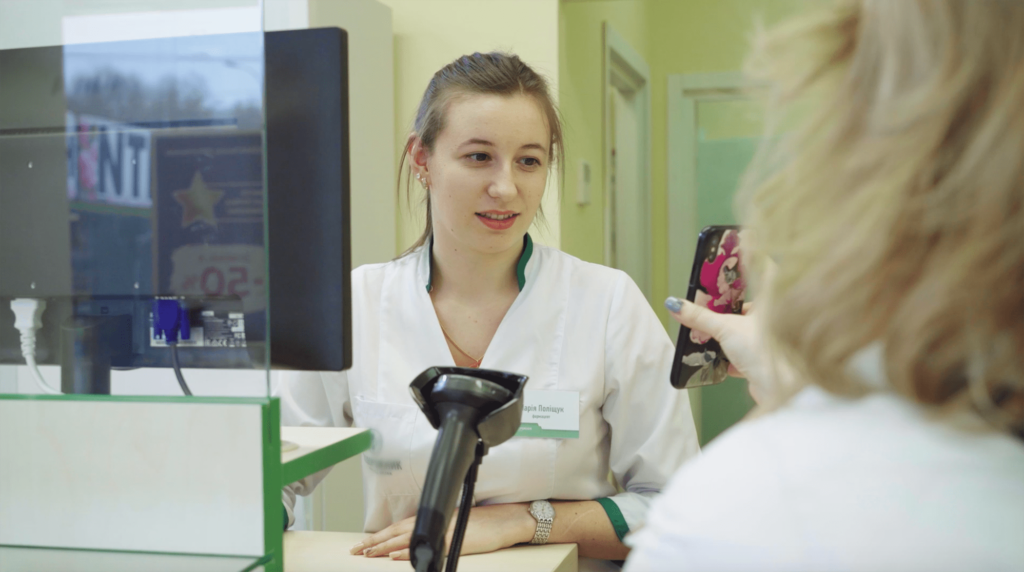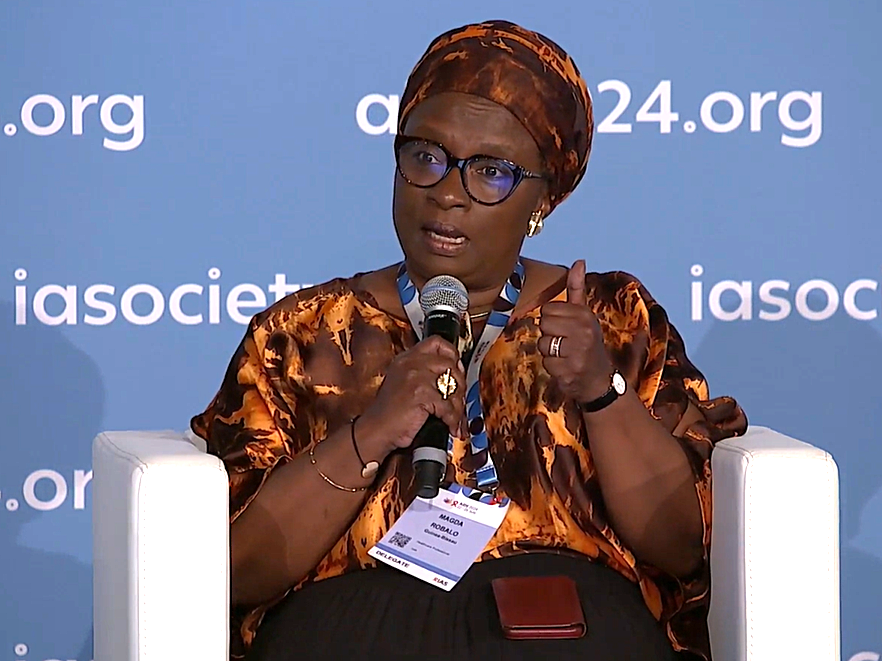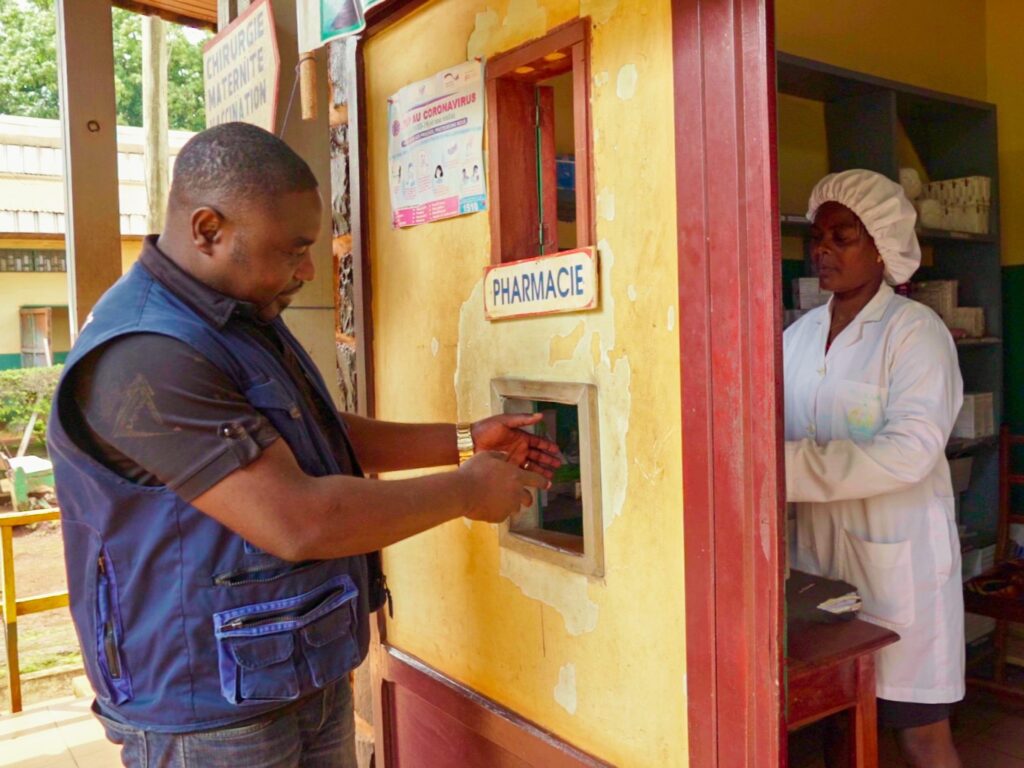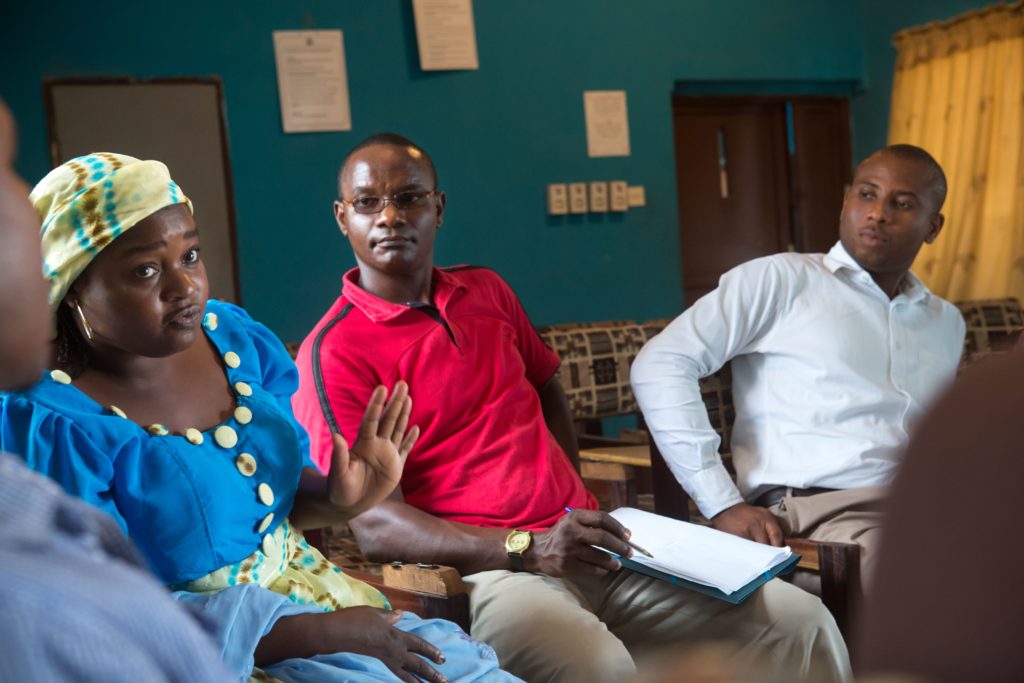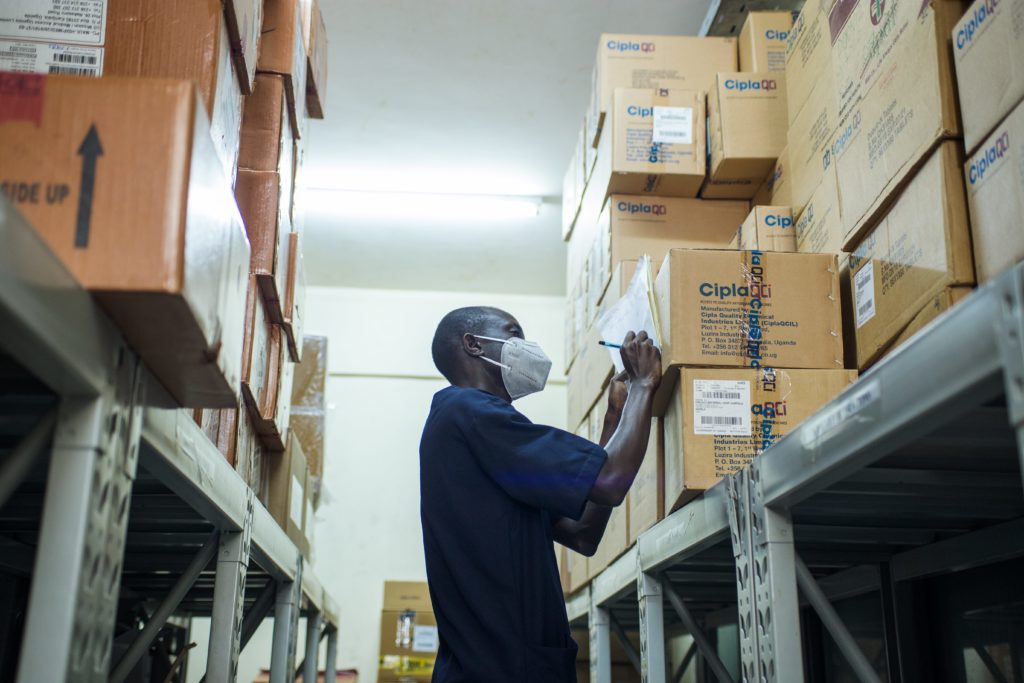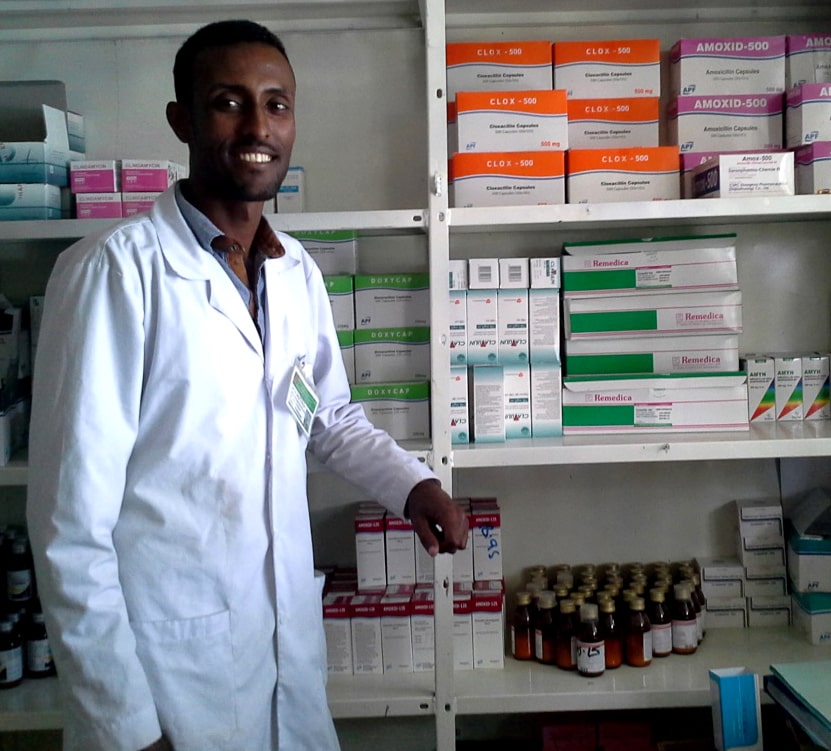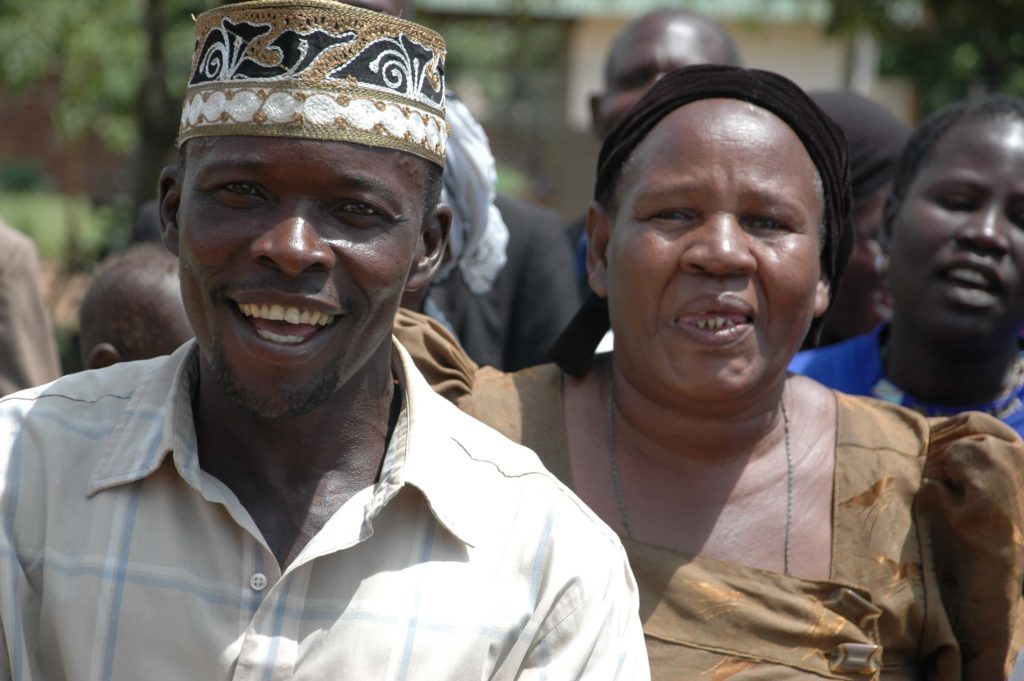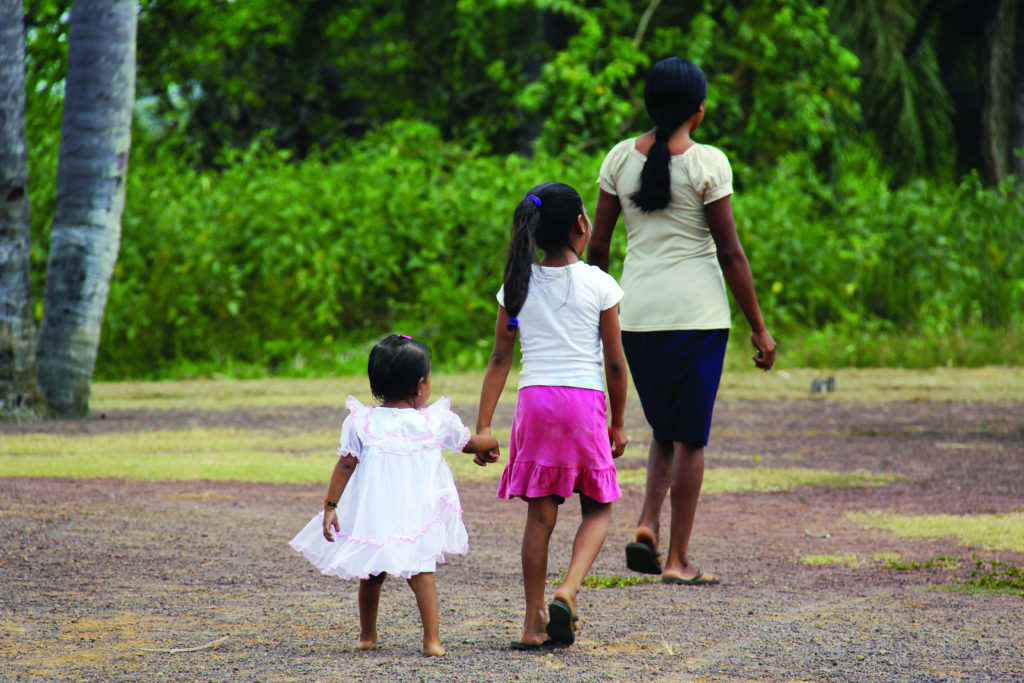MSH at AIDS 2024
MSH at AIDS 2024
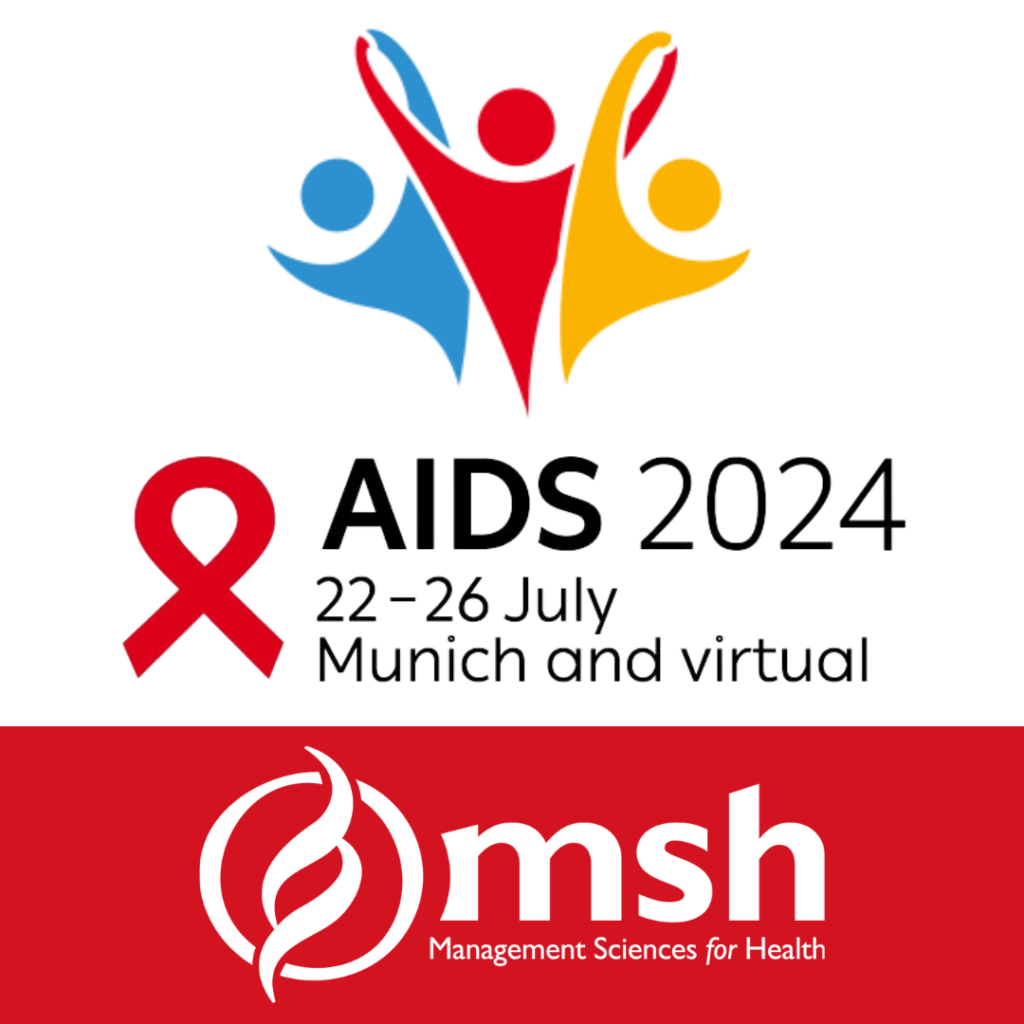
AIDS 2024, the 25th International AIDS Conference, took place in Munich, Germany, and virtually on July 22–26, 2024. MSH President and CEO Marian W. Wentworth led the MSH delegation, which included our HIV technical experts and project colleagues from Uganda to Ukraine. MSH’s focus at this year’s conference was around the theme “Sustaining the HIV Response through Local Leadership of Strong Health Systems.”
We hosted two Satellite Sessions, which featured key issues critical to sustaining the HIV response in an era of dwindling donor funding and strategies and solutions for strengthening country ownership and leadership of routine health system functions.
MSH-Sponsored Satellite Sessions
Session 1: Sustaining the HIV Response
- Tuesday, July 23 | 18:00–19:30 (CEST)
- Location: Hall BOa/Channel 4
- Chair: Michael Ruffner, Deputy Coordinator, Office of the Global AIDS Coordinator, Bureau of Global Health Security and Diplomacy/The US President’s Emergency Plan for AIDS Relief (GHSD/PEPFAR)
- Moderator: Jen Kates, Senior Vice President, Director; Global Health and HIV Policy, Kaiser Family Foundation (KFF)
Panelists:
- Marian W. Wentworth, MSH President and CEO
- Neeta Bhandari, Senior Program Officer, HIV Sustainability, The Bill & Melinda Gates Foundation
- Allan Maleche, Executive Director of Kenya Legal and Ethical Issues Network on HIV and AIDS, Civil Society Representative
- Daniel Mwai, Health Economist and Health Financing Specialist, Country Representative (Kenya)
- A.K. Nandakumar, Director of the PhD Program at the Heller School of Social Policy and Director of the Institute for Global Health and Development, Brandeis University and GHSD/PEPFAR
- Naemi Shoopala, Ministry of Health, Government of Namibia, co-chair of the HIV Response Sustainability Advisory Committee, Country Representative (Namibia)
Chaired and moderated by representatives from the US President’s Emergency Plan for AIDS Relief (PEPFAR) and the Kaiser Family Foundation (KFF), respectively, this panel presented and discussed the results of new analyses by Brandeis University, KFF, the Centers for Disease Control (CDC), and MSH to foster a dialogue on key issues critical to sustaining the HIV response.
![[A health worker checks malaria commodities at a private clinic in Balaka, Malawi.] {Photo credit: Samy Rakotoniaina/MSH}](https://msh.org/wp-content/uploads/2019/04/clinician_checking_malaria_commodities_at_private_clinic_in_balaka_malawi_receiving_capacity_building_from_onse_health_activity3_715px.png)
Session 2: Accelerating Local Leadership of Health System Functions as a Critical Pathway to Sustainability of the HIV Response
- Wednesday, July 24 | 07:00–08:00 (CEST)
- Location: Hall BOb/Channel 5
- Chair: A.K. Nandakumar, Brandeis University and GHSD/PEPFAR
- Moderator: Aday Adetosoye, Vice President of the Global Health Programs Delivery Group, MSH
Panelists:
- Ashley Frost, Deputy Director for the Office of HIV and AIDS, USAID
- Olga Gvozdetska, Acting Deputy Director General, Public Health Centre of the Ministry of Health of Ukraine
- Sarah Konopka, Technical Director of Infectious Diseases and Cluster Lead for HIV and AIDS, MSH
- Eric Lugada, Chief of Party, USAID Strengthening Supply Chain Systems (SSCS) Activity, Uganda
- Khuất Thị Hải Oanh, Executive Director, Center for Support Community Development Initiatives (SCDI), Vietnam
- Magda Robalo, President, Institute for Global Health and Development of Guinea-Bissau
This session featured recent MSH analysis and findings related to country experiences of transitioning routine health system functions to government responsibility. The discussion identified new strategies and solutions for optimizing this process as a pathway to sustainability of the HIV response. Panelists shared country experiences, elevating local perspectives and recommendations for driving locally led and sustainable transition processes.
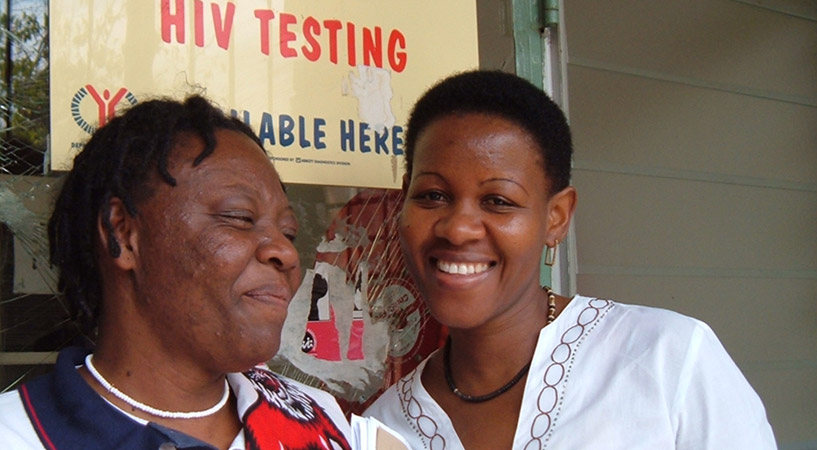
Poster Presentations
Lessons Learned from the Implementation of Suggestion Boxes in HIV Clinical Settings in Haiti to Strengthen Person-Centered Care
- Tuesday, July 23 | 12:00–13:00 (CEST)
- Track E, Board 619
- MSH Authors: Regine Emilien, Lindsay Murphy
- Project: Reaching Impact, Saturation and Epidemic Control (RISE)—Haiti
Innovative Supply Chain Data Analytics Models Driving HIV Service Delivery in Uganda
- Tuesday, July 23 | 12:00–13:00 (CEST)
- Track E, Board 631
- MSH Authors: Shamim Nakade, Henry Oundo, Denis Okidi, Daniel Mawerere, Linacy Nampa, Joseph Emiku, P. Elungat, Martin Oteba, Dr. Eric Lugada
- Project: Uganda Strengthening Supply Chain Systems (SSCS) Activity
Condom Use among Sexually Active Men Who Know Their HIV Status: Findings from the 2022 Cross-Sectional Kenya Demographic and Health Survey (KDHS)
- Tuesday, July 23 | 12:00–13:00 (CEST)
- Track C, Board 190
- MSH Author: Sarah Konopka
Using Mystery Client Surveys to Assess the Effectiveness of a Comprehensive Program to Improve Person-Centered Care in HIV Clinical Settings in Haiti
- Wednesday, July 24 | 12:00–13:00 (CEST)
- Track E, Board 623
- MSH Authors: Regine Emilien, Lindsay Murphy
- Project: RISE—Haiti
Building Local Capacity for Improved HIV Treatment Safety in Mozambique
- Available Online
- MSH Authors: Tamara Hafner, Eunice D. Seni
- Project: The Medicines, Technologies, and Pharmaceutical Services (MTaPS) Program—Mozambique
Featured speakers
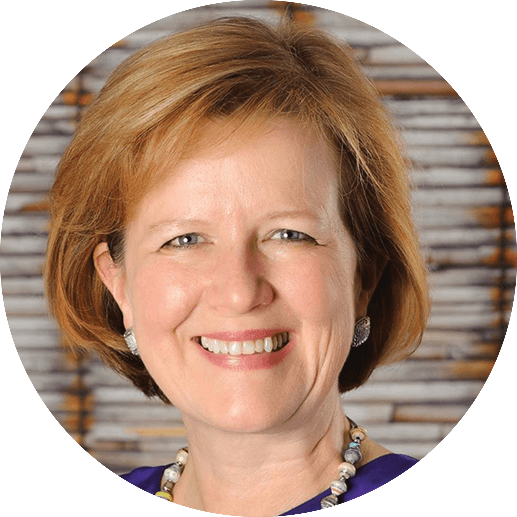
Marian W. Wentworth, President and CEO, MSH
Marian W. Wentworth is President and Chief Executive Officer of MSH. Since 2017, Wentworth has helped MSH make sustainable systemic improvements in some of the globe’s most challenging environments. This includes leveraging decades of MSH’s experience in pharmaceutical and health systems strengthening, which fosters access to quality health services and improves health outcomes for women, children, and adolescents. Before MSH, Wentworth managed global strategy for marketing, manufacturing, and research at MSD/Merck for 27 years. A champion of women’s and adolescent’s health, she led the global sales and marketing launch of the first cervical cancer vaccine, Gardasil, and managed a portfolio of adult vaccines.

Aday Adetosoye, Vice President of the Global Health Programs Delivery Group, MSH
Dr. Aday E. Adetosoye, Vice President of the Global Health Programs Delivery Group at MSH, has more than 20 years of experience leading, managing, and supporting public health programs in the US and Africa. Before joining MSH, Dr. Aday was the Director of the Office of Global Health at the Health Resources & Services Administration (HRSA) of the US Department of Health and Human Services, where she served as a PEPFAR Deputy Principal and provided diplomatic and senior-level oversight of HRSA’s global health programs in 16 countries. Prior to that, Dr. Aday served as the Executive Director of the Walter Reed Program in Tanzania, providing oversight of research and program activities within civilian and military populations. She has also served as a Senior Advisor with USAID in the Offices of HIV/AIDS and Programs, Policy, and Planning, providing expert programmatic and technical leadership, strategic planning and policy advice, guidance, and support to USAID/PEPFAR.
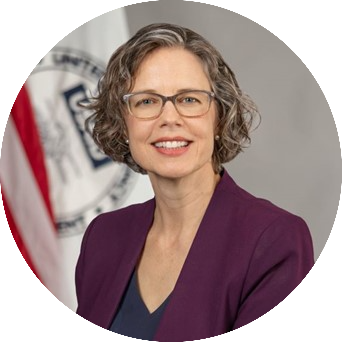
Ashley Frost, Deputy Director for the Office of HIV and AIDS, USAID
Dr. Ashley Frost is a USAID career Foreign Service Officer and serves as Deputy Director for the Office of HIV/AIDS in Washington, DC. Dr. Frost has served more than a decade in the foreign service managing USAID health programming in southern Africa and Central America, and she currently leads USAID’s worldwide PEPFAR programming in HIV research, systems strengthening, sustainability, strategic information, evaluation, and informatics. Dr. Frost has worked extensively with international researchers, policymakers, and program managers to improve evidence-based decision-making for public health outcomes. She holds a PhD in sociology and demography and served as a Peace Corps Volunteer in Benin, West Africa.
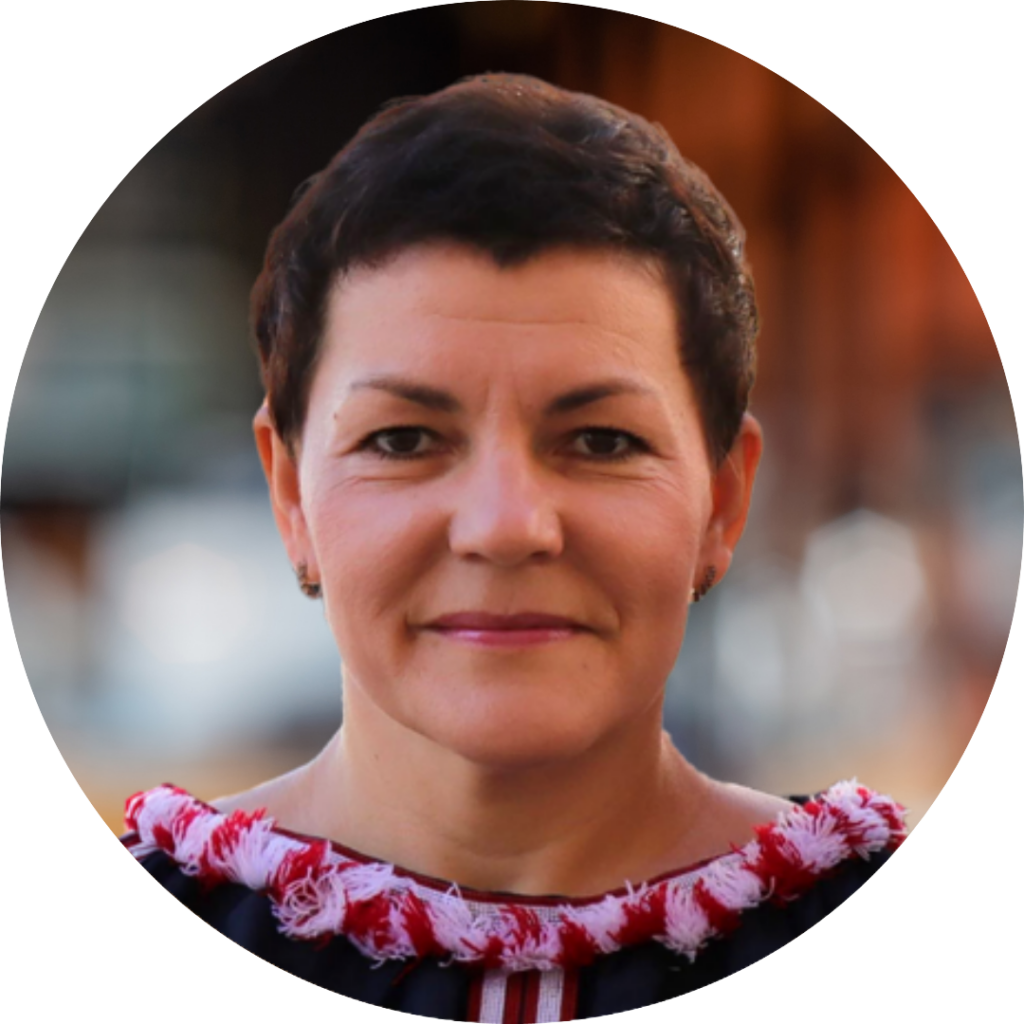
Olga Gvozdetska, Acting Deputy Director General, Public Health Centre of the Ministry of Health of Ukraine
Olga Gvozdetska is the Acting Deputy Director General of the Public Health Centre of the Ministry of Health of Ukraine. With nearly 20 years of experience in public health, both private and state, Gvozdetska has experience in managing and coordinating health and social programs and projects; collaborating with NGOs, government representatives, and the scientific community; organizing international cooperation activities and developing methods for implementation; and establishing contacts with foreign agencies, associations, institutions, and country offices in Ukraine. As Acting Deputy Director General, Gvozdetska ensures the proper functioning of structural units of the Urban Primary Health Centre, including the Departments of Viral Hepatitis and Opioid Dependence; Coordination of HIV Diagnosis and Treatment Programs; Coordination of TB Diagnosis and Treatment Programs; Pharmaceutical Management and Inventory Management; Scientific Research, and Project Management and International Cooperation.

Sarah Konopka, Technical Director of Infectious Diseases and Cluster Lead for HIV and AIDS, MSH
Sarah Konopka, MSH’s Technical Director of Infectious Diseases and Cluster Lead for HIV and AIDS, has more than 15 years of experience in program design and implementation, research, and policy analysis in HIV and integrated health programs in more than 20 countries. She leads the development and design of MSH’s work to strengthen infectious diseases programming, with a focus on HIV, malaria, TB, and other emerging health threats. Throughout her career, Konopka has led research and built high-level consensus with USAID missions, host governments, civil society, the private sector, and multilateral organizations to produce tangible outputs, such as the development and adoption of regional minimum standards for HIV services in southern Africa. Her publications include several peer-reviewed articles on HIV and AIDS, as well as research papers and policy briefs on strategic integration and enablers of and barriers to HIV service uptake and usage.

Eric Lugada, Chief of Party, USAID Strengthening Supply Chain Systems (SSCS) Activity, Uganda
Dr. Eric Lugada, a medical epidemiologist and senior public health physician with 26 years of experience managing national public health programs, is the Chief of Party for the MSH-led USAID-funded Strengthening Supply Chain Systems (SSCS) Activity in Uganda. Dr. Lugada is an HIV and AIDS subject matter expert who has directed the implementation of transformational health programs that advance health system strengthening and effective and efficient health care delivery across sub-Saharan Africa, including Kenya, Nigeria, Sudan, Uganda, and Tanzania. He has extensive experience in restructuring medical supply chain operations to increase citizens’ access to quality medicines and health care. Prior to joining MSH, he was the Program Director for the University Research Council (URC)-Uganda Department of Defense HIV/AIDS Prevention Program, Director for the URC-USAID ASSIST project in Uganda, and Country Director, Axios Foundation, Inc., for Sudan and Nigeria.
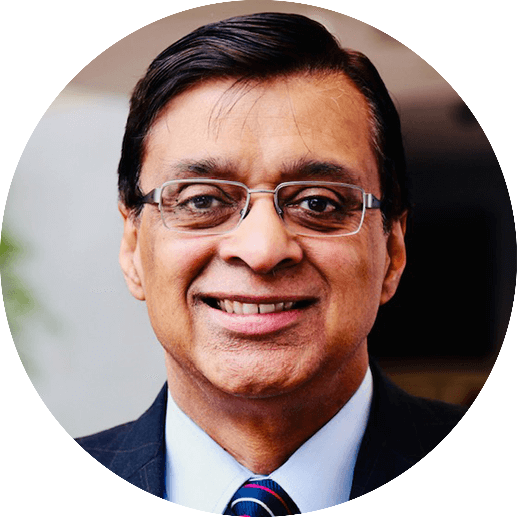
A.K. Nandakumar, Brandeis University, GHSD/PEPFAR, and MSH Senior Fellow
Dr. A.K. Nandakumar is a Professor of the Practice at Brandeis University, where he is Director of the PhD Program at the Heller School of Social Policy and Director of the Institute for Global Health and Development. In 2021, Dr. Nandakumar was appointed as the first Chief Economist at the Office of the Global AIDS Coordinator. Prior to that, he served for four years as the first Chief Economist for the Global Health Bureau at USAID. Dr. Nandakumar is an internationally recognized health-financing expert, known specifically for his work in resource tracking, health financing, and health care policy and research.

Khuat Thi Hai Oanh, Executive Director, Center for Support Community Development Initiatives (SCDI), Vietnam
Dr. Khuat Thi Hai Oanh co-founded the Center for Support Community Development Initiatives (SCDI) in 2010, where she currently serves as the Executive Director. SCDI focuses on empowering marginalized and vulnerable populations, such as sex workers, drug users, people living with HIV, poor migrants, ethnic minorities, and LGBTIQA individuals, to contribute to the Sustainable Development Goals agenda. Dr. Oanh is a graduate of Hanoi Medical University and holds a Master’s degree in Sexual and Reproductive Health Research from the London School of Hygiene and Tropical Medicine.

Magda Robalo, President and Co-founder of The Institute for Global Health and Development of Guinea-Bissau; MSH Board Member
Dr. Magda Robalo is President and Co-founder of The Institute for Global Health and Development of Guinea-Bissau. A public health physician and infectious disease expert, she has over 30 years of experience in the global health ecosystem. Her roles include former Minister of Health, High Commissioner for the COVID-19 response in Guinea-Bissau, WHO representative, Director of Communicable Diseases at WHO/AFRO, and Global Managing Director of Women in Global Health. Dr. Robalo has led numerous successful initiatives across governmental, multilateral, and civil society organizations, focusing on advancing health care access, ethics, and accountability. With extensive knowledge and experience in public health, ethics, and governance, Dr. Robalo serves on several boards and councils, engaging with a broad network of experts and policymakers in global health.


